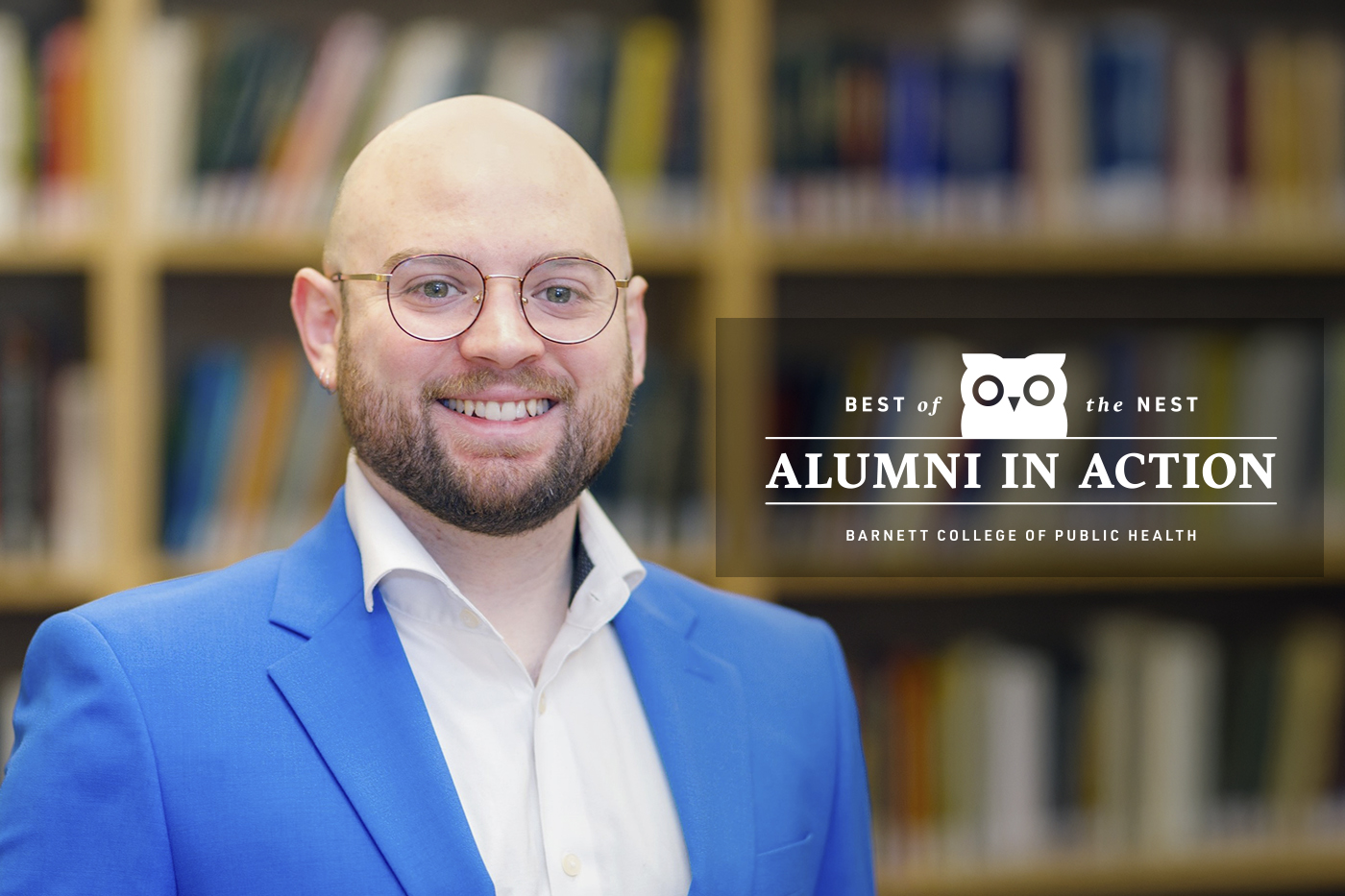Patrick Kelly, BSPH/MPH, knows how to follow an idea where it leads—and it’s taken him far. He’s been named the new Student Editor of the American Journal of Public Health, one of the field’s most influential journals. Now pursuing his doctorate at Brown University, the Temple alumnus traces his success back to the foundation he built at the College of Public Health.
Kelly hadn’t expected to find his path in public health—it took shape when he started looking for work that made a difference beyond the lab. As a Temple undergraduate, he began in cellular and molecular neuroscience on a pre-med track, but by sophomore year he was craving something more connected to people and community. An honors advisor pointed him toward the College of Public Health, where classes in disease prevention and control, health communication, and substance use and addiction made him feel genuinely excited about what he was studying. “It felt much more satisfying than anything else I’d been doing,” he said.
At Temple, Kelly found mentors who shaped how he thinks about science and who it serves. He joined Sarah Bass’ Temple University Risk Communication Laboratory, advancing from volunteer to research coordinator. Fieldwork in Kensington with people who use drugs gave him the human-centered experience he’d been seeking. “The faculty met me with open arms,” he said. “It felt like we were working toward something bigger than what was happening in the classroom.”
Those experiences inspired his “makeshift medicine” framework—a way to understand how people meet their health needs when formal care is out of reach because of policy barriers or stigma. He’s seen people self-treat wounds, dose antibiotics, or rely on mutual-aid networks when clinics feel inaccessible. “Despite laws and the existence of stigma, people figure out ways to meet their medical needs,” he said. “There can be beauty in collectivizing care, but it’s also important to acknowledge the risks of operating outside formal medicine.”
That attention to lived experience now drives Kelly’s doctoral work at Brown. “I admired the energy of the research enterprise at CPH,” he said. “It made me think, ‘I could do that.’”
As Student Editor of the American Journal of Public Health, a role he began in May, Kelly reviews manuscripts, helps solicit editorials that translate new research into practice, and leads a call for papers on the responsible use of artificial intelligence in public health. “It’s broadened how I think about the field beyond my drug-use and LGBTQIA+ health spaces,” he said.
His dissertation, funded by an NIH/NIDA fellowship, examines xylazine—often called “tranq”—a veterinary sedative that entered the fentanyl supply and is linked to severe wounds and complex overdoses. He’s building a machine-learning model using natural-language processing to classify patient exposure when tests aren’t available, improving surveillance and treatment. The funding briefly faced termination during a broader policy shift but was reinstated, and he continues his work under year-two support.
Kelly’s research on drug use intersects with his commitment to LGBTQIA+ health, where he advocates for evidence-based, inclusive care and supports colleagues navigating political and professional pressures. Some of his work has already been cited in briefs to expand access to gender-affirming care.
Much of his scholarship is qualitative, rooted in community conversations. “People often say they feel like no one listens,” he said. “Hearing their stories brings a sense of responsibility—our job is to do right by the narratives people share with us.” He stays connected through outreach and harm-reduction work. The relationships, as he puts it, “fill my cup,” keep the science grounded, and remind him of his time at Temple.
“I knew I was meant to be an Owl,” he said. The energy, diversity, and mentorship—especially from Bass—continue to guide his work. The two recently co-authored an AJPH piece on public health curriculum and rebuilding trust, expected to publish early next year.
Kelly’s advice to students reflects his own path: public health training is inherently interdisciplinary and transferable. “There are so many ways our skills can be used,” he said. “It’s a challenging time—but also an exciting time to think about rebuilding.”

